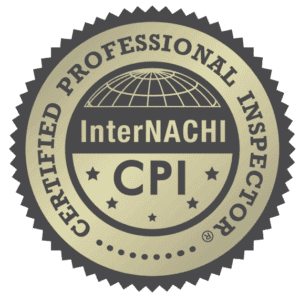Keeping Your Gutter System in Order Can Save You Big Money
I believe it is in our nature as human beings to run to the most extreme and/or expensive solution when things go wrong. Maybe that’s why we delay maintenance on our homes when we can sense an issue or wait until a noise really escalates on our car before getting it checked out. We tend to assume the worst and are afraid of that being confirmed.
A scenario that many homeowners may wish to delay dealing with until it’s too late is water seepage into their basements. When a basement starts leaking usually we assume there is a major issue, so we use temporary patching like mastic sealant to put a bandaid on the issue. The problem with this thinking is we are treating a symptom versus the cause. With a leaky basement, patching cracks will not ensure no leaks in the future. What causes seepage is rainwater pooling close to the foundation which will not only allow water to leak through cracks but also expand those cracks through the freeze/thaw cycle.
While there are many issues that may cause water pooling near the home, I want to discuss the one that is seen the most and is also usually the easiest and cheapest to correct; improperly installed or damaged gutter systems. If I had to give out an award for most underappreciated system of a home it would be the gutter system. The purpose of gutters and downspouts is to direct rainwater landing on your roof away from the home. If the system is not properly installed or maintained, you have a high probability that water is pooling by your foundation. So how do you ensure this system is functioning as intended?

Figure 1 – Foundation wall deterioration due to a missing downspout
- Clean Gutters and Downspout – If your gutters or downspouts are clogged with leaves or other debris, rainwater will flow out the side of the gutters and land close to the home. The system should be inspected once a year and cleaned as necessary. A good test is to run a hose in the gutters for a couple minutes to see how long things take to drain. Any backup means there is a clog somewhere.
- Fix leaks and make sure lines are properly secured in good condition – During a rainstorm or by running a hose again, observe any leaks in the gutters or downspouts. Gutters should also be secured and tilted slightly away from the house (not noticeably). Downspouts should be secured and not damaged. If you observe any leaks, overly pitched or loose gutters, and/or damage of loose downspouts, fix immediately to ensure rainwater is being properly relocated.
- Proper Downspout Termination – You can have the perfect gutter system, but if you don’t ensure a proper relocation for the rainwater then you will actually be causing more harm than good. Downspouts need to terminate either in an underground drainage system or 6 feet from the home. See Figure 3 below for an example of improper termination. If the downspout is not extended 6 ft from the home you will be dumping all the water from the roof right near the home. Over time, the foundation will deteriorate and will start leaking. For under 20 dollars you can buy a 6 foot piece of downspout and extend the line. Twenty dollars can save you $1000’s over the long haul.

Figure 2 – Illustration of proper downspout extension
If you have followed all of the steps above and you are still getting water seepage or notice pooling of water near the house, the next step is to contact a landscaping contractor and get your grading evaluated. Normally poor site drainage due to negative grading is the issue. Hope you find this information helpful and please feel free to reach out to info@homeinspectiongeeks.com with any additional questions.




